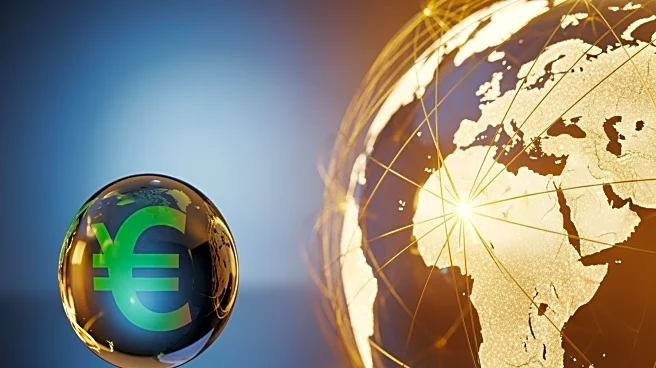What's Happening?
The Economic Police Division of the Ho Chi Minh City Police Department has dismantled a sophisticated operation involved in the production and distribution of counterfeit perfumes mimicking major global brands such as Chanel, Gucci, and Dior. The operation was
led by Nguyen Ngoc Tho and his wife Truong Thi Mai Hien, who began producing fake perfumes in early 2024 in response to increased market demand. They rented a workshop, purchased necessary equipment, and recruited family members to assist in the production process. The counterfeit products were marketed and sold through social media and messaging platforms, reaching various provinces and cities across Vietnam. Authorities have confiscated nearly 20,000 bottles of fake perfume and related materials, with the total value of counterfeit goods estimated at VND 15 billion (approximately USD 615,000). Eleven individuals have been indicted in connection with the operation.
Why It's Important?
This crackdown highlights the ongoing challenges faced by law enforcement in combating counterfeit goods, which pose significant risks to consumer health and brand reputation. The production and sale of fake perfumes not only undermine legitimate businesses but also deceive consumers who may unknowingly purchase substandard products. The operation's scale and sophistication underscore the need for stringent enforcement and regulatory measures to protect intellectual property rights and ensure consumer safety. The Ho Chi Minh City police's zero-tolerance approach serves as a deterrent to similar illegal activities, reinforcing the importance of maintaining order in commercial activities and safeguarding the rights of consumers and legitimate businesses.
What's Next?
The investigation into the counterfeit perfume operation is ongoing, with authorities likely to pursue further legal action against those involved. The police's efforts to dismantle such operations may lead to increased scrutiny and regulation of the perfume industry, particularly concerning online sales channels. Businesses and consumers are expected to be more vigilant in verifying the authenticity of products, potentially prompting brands to enhance their security measures and consumer education initiatives. The crackdown may also encourage other regions to adopt similar enforcement strategies to combat counterfeit goods.
Beyond the Headlines
The production of counterfeit goods raises ethical concerns regarding consumer deception and the exploitation of brand reputation. It also highlights the broader issue of intellectual property rights violations, which can stifle innovation and economic growth. The case underscores the importance of international cooperation in addressing the global challenge of counterfeit goods, as well as the need for public awareness campaigns to educate consumers about the risks associated with purchasing fake products.















